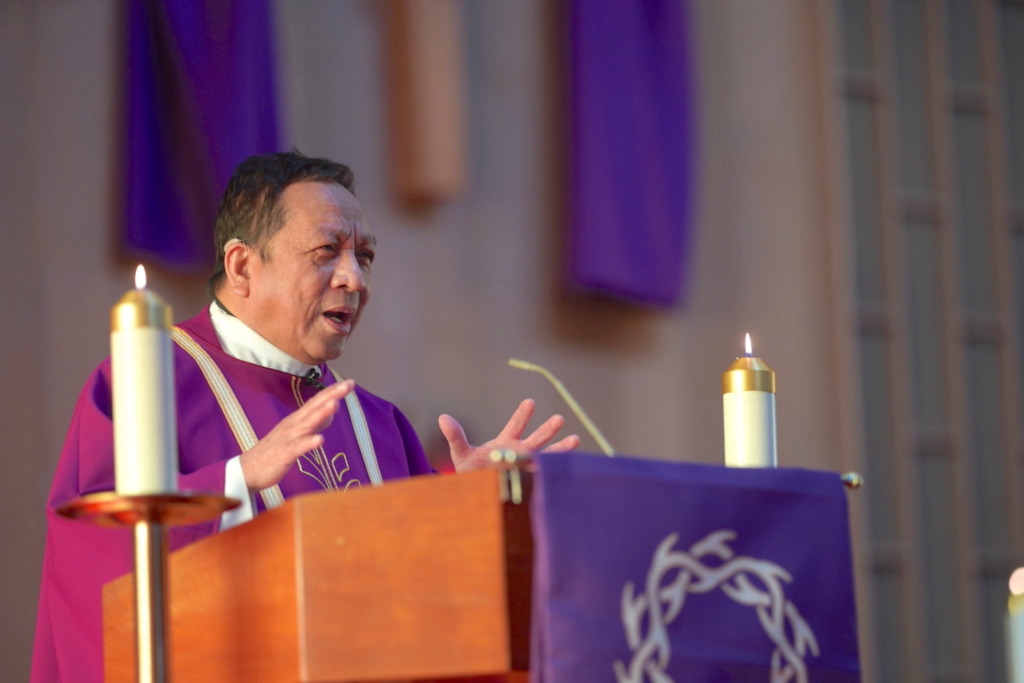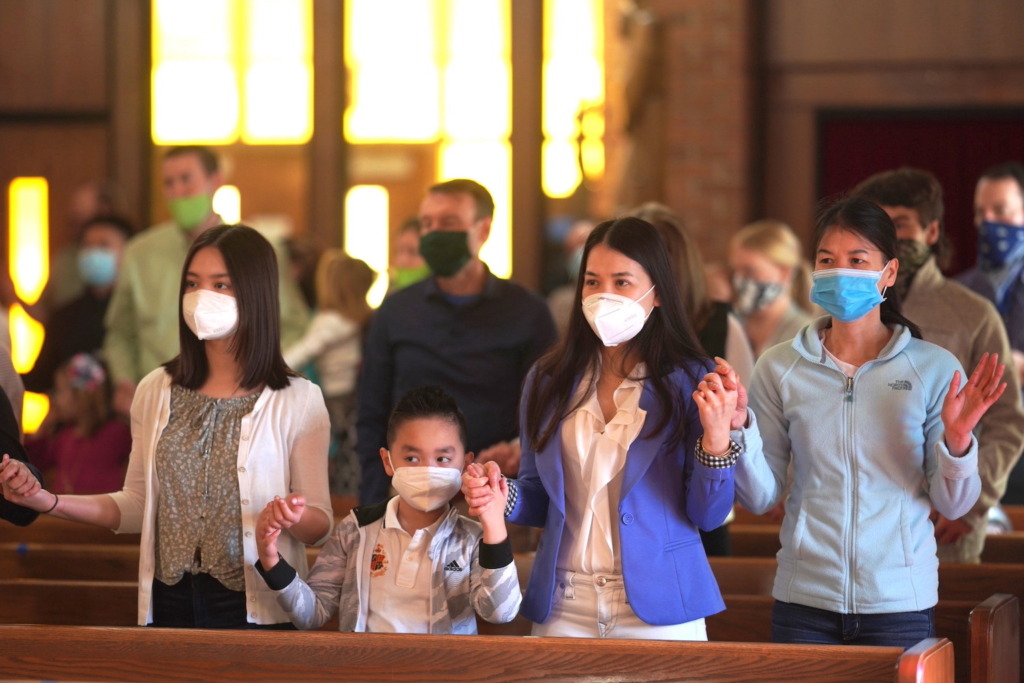Parishioners at Our Lady of the Blessed Sacrament (OLBS), West Point, consider the parish home — so much so that the congregation of 178 registered families raised more than $386,000 in a capital campaign to preserve their church buildings.
And they did it in about three months.
The parish surpassed its goal of $300,000 through one-time donations and pledges that contributors will fulfill over five years.
Veronica Scholle, mission advancement manager for the Diocese of Richmond’s Catholic Community Foundation who worked with the parish, said pledges usually generate higher donations. For example, it may be easier for a family to pay $50 a month for five years rather than to make a one-time donation of $3,000.
Scholle said the parish was so “overwhelmingly successful” in the Our Hope, Our Home, Our Lady campaign “because of their commitment to their faith and what their church means to them.”
Father Oscar Paraiso, pastor, said “people here are very, very generous.” They “identify themselves with the church” and don’t want it “to just fall apart.”
Jim Pyne, facilities committee chairman, described the parish as a “very tight-knit community” where everyone knows each other.
“It’s home, and people care for it – or try to anyway,” he said. “It needs a little TLC right now, but it’s home.”
OLBS was established in 1918, primarily by Polish immigrants who came to the area in the early 1900s for farming and the shipbuilding and papermaking trades. Some descendants are still parishioners, but the congregation is now mainly Anglo with sizeable Hispanic and Vietnamese populations. Scholle said parishioners in all three cultural groups “pulled together” for the campaign.
Parishioner Tuan Nguyn said people in the congregation are “all good people,” and “they have a good heart” that drove them to donate.

The original church was built in 1925; later building projects included a parochial school and convent in 1931, a new rectory in 1965 and the present church in 1968. The school closed in 1968, and the structure, now called Mercy Center, was remodeled. It contains the parish offices, a preschool and “Good Neighbor Center” — an ecumenical effort to assist those in need of emergency food, shelter or clothing.
Among its uses, the Van den Boogaard Center, which is the parish hall, is used for religious education classes and fellowship opportunities like pancake breakfasts, Knights of Columbus Lenten fish fries and other events. The hall is also available for rent as it has an upstairs apartment.
Parishioner Bob Ryalls, parish business manager, said that over the last several years the parish has been forced to defer many major repairs/renovations due to a lack of sufficient funds. As a result, the parish would make temporary repairs as maintenance needs occurred.
Because many of those repairs have not held up, the parish must apply more than a Band-Aid to resolve the issues. He said several buildings are showing their age, and unless repairs are made, “there will be no facility left to fix.”
The three buildings have suffered water damage, which will be repaired as a result of the campaign. The church will receive a new roof and repairs will be made to the masonry stairs and walkway. Maintenance on the Van den Boogaard Center will replace its roof, create a conditioned crawl space, replace the tile floor with vinyl planks and replace the carpeted area with new carpet.
Renovations for the Mercy Center include a new roof over the office section, replacement of the main doors to the classroom wing, and repair and seal of the masonry.
Scholle spoke about the campaign during Masses one weekend in May and gave parishioners an information packet that included a brochure and pledge card. She mailed packets to parishioners who weren’t present.
Parishioners were invited to meetings to learn more about the campaign, and many families met one-on-one with Scholle and Father Paraiso. He kept the parish abreast of the progress of the campaign at weekend Masses, and updates were placed in the bulletin, on church bulletin boards and on the parish website and Facebook page, Scholle explained. The project is now in the bidding process.
For this campaign, Scholle worked with a cabinet of 14 parishioners, something she doesn’t normally do. She described it as “an incredible team” that represented all three cultural groups and was “key” to the campaign’s success.
Parishioners said they love the parish because it is warm, welcoming and friendly.
Linda Drexler, parish historian, said when a few Vietnamese families moved to the area after the war, the parish offered them temporary places to stay, helped them find jobs and provided for their basic needs until they could do so on their own.
Jacinta Hernandez, also a church member, said the parish “feels like family,” and “is always happy to accept new people.”
That was true for Pam Watkins, parish administrative assistant, when she visited OLBS for the first time in 2012. She had tried other parishes after moving to the area that year but didn’t find one to call home. She visited OLBS at the suggestion of a Protestant friend and found it to be so friendly and welcoming that she believes her visit was “an act of God.”
“When we walked into the doors of Our Lady of the Blessed Sacrament, it was like we were home,” Watkins said. “It was a perfect fit for us, and we love it.”
She said parishioners “step up” when needs occur. For example, they bring food to funeral receptions, and when the pandemic struck, Watkins started a phone chain among the parishioners so they could continue their relationships. When she began organizing it, she discovered that many parishioners were already calling the elderly and shut-ins.
“This community gathers with each other, and they love each and together, and they take care of each other,” Watkins said. “It’s just how the parish is.”

